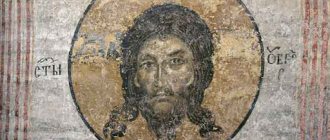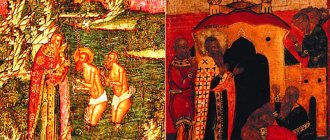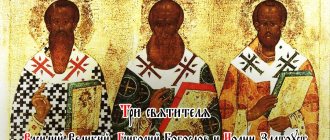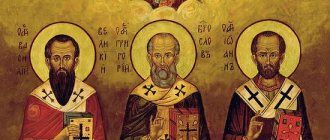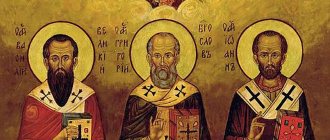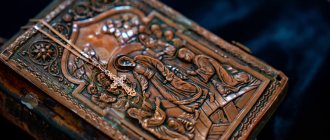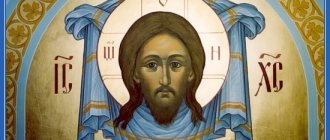The historical biblical account of the creation of Adam and Eve (Genesis 1:26-27) states that God created the first man and woman “in his own image.” What does it mean? And why is this important?
This happened on the sixth day of Creation Week, after God had prepared the earth as a habitation, and after He had created fish, birds and other animals. They were all created by God's decree, meaning that God commanded (or required) and it was done. In the case of the creation of man there is a difference. The Bible says:
“And God said, Let us make man in our image, after our likeness... And God created man in his own image, in the image of God he created him, male and female he created them” (Genesis 1:26-27).
Divine Advice
In this intriguing verse, God appears to be talking to someone. Calvin said:
"It is the language of one who appears to be discussing... he is consulting."
Many other commenters call this "advice." But if this is so, with whom does God consult? And why? Does the Bible give any hint?
Since the Lord does not need another counselor, any such consultation had to take place in God - between God the Father, God the Son and God the Holy Spirit. Hebrews 1:2 in English says that when God created the world or the universe, he created it through his Son.
God could have easily created man with His own Word, as He did with animals (Genesis 1:20,24) and plants (Genesis 1:11), but He chose not to do so. Man is neither a close relative of animals nor a distant relative of primitive plant life. Rather, he is someone great, wonderful and different, the most excellent of all God's works, man is a special expression of the divine nature created by the personal activity of God. God creates it with the solemnity, dignity and honor of deep deliberation on the part of the Divine.
God endowed man with intellectual abilities that were and are far superior to those of any animal.
Although man was formed from the dust of the earth, God personally “breathed into his nostrils the breath of life, and man became a living being” (Genesis 2:7). Thus, man's life is not the result of a spontaneous reorganization of molecules within his body, nor was it caused by evolution from any animal or "lower hominid" (as theistic evolutionists claim), but is a direct gift from God. This is further emphasized in the Bible in the genealogy of Adam in Luke, where he calls Adam not the son of an anthropoid ape, but the “son of God” (Luke 3:38).
Why did God discuss this with the Son? Revelation 13:8 says that the Lamb of God (that is, Jesus) has been “slain from the foundation of the world.” By the sixth day of Creation Week, the foundation of the world was truly well laid, but with the creation of man, God was about to begin that chain of events that would inexorably lead to the future crucifixion and death of the Lord Jesus Christ on the Cross as atonement for the sin of mankind.
By His earthly life, Jesus confirmed His willingness to do the Father's will in this regard, in the Garden of Gethsemane (Matthew 26:39, 42). Is it possible that he also did this in the heavenly council just before God created Adam?
Every person has the image of God
The Bible affirms that every person is an image bearer of God and therefore has dignity and worth. So how can you learn to notice God’s beauty in people?
The principle is love
The Christian principle of relating to one's neighbor is love. To fulfill this commandment, first of all you need to learn to see the image of God in every person. The book of Genesis says: “And God said, Let us make man in Our image, according to Our likeness... And God created man in His own image, in the image of God created He him” (Genesis 1:27).
You can't argue with Holy Scripture. However, in practice, discerning the divine essence in others is not always easy. After all, we usually pay attention to superficial qualities by which we evaluate people. For example, this one is educated, and that one is stupid; this one is rich, that one is poor, etc. Such a perception prevents us from seeing the good in a person, focusing only on the petty and unimportant. And then, instead of loving our neighbors, we begin to label them and treat them with prejudice.
The image of God is placed in man by the Creator
“And the Lord God formed man of the dust of the ground, and breathed into his nostrils the breath of life, and man became a living soul” (Gen. 2:7). The Lord breathed His breath into us, that is, conveyed His essence to us. In the future, man is called to become not an image, but the likeness of God, the likeness of Christ. But at the moment, man is still only an image, dusty and broken, which the Lord has yet to restore. The Lord is interested in this restoration because He loves His creation and hates sin, which distorts the heavenly beauty of man. However, He does not carry out the process of soul transformation personally, but attracts people themselves to it.
What is the image of God?
First, man has an eternal soul. Every soul is priceless. She is more valuable than the whole world. Jesus said, “What good is it if you gain the whole world and lose your own soul?” Therefore, every person, without exception, is valuable.
Secondly, every man or woman is endowed with creativity by God. Each of us creates something (big or small), transforms, brings something new into the world. And we all have different talents, gifts and virtues.
The features of God's image are also spirituality, rationality, the ability to express one's own thoughts, free will, mercy, compassion, love, and conscience.
Have a pure heart
To see the image of God in another, you must first take care of the purity of your own heart: “Blessed are the pure in heart, for they will see God” (Matt. 5:8).
What most pollutes our hearts is such a habitual and common sin as condemnation. It’s amazing that we decide to condemn our neighbor even though we ourselves sin every day! Jesus, knowing our tendency to judge, warns: “Judge not, lest ye be judged, for with the judgment ye judge, ye shall be judged; and with the measure you use, it will be measured to you” (Matt. 7:1).
And the Apostle Paul advises: “Pay attention to yourself and to the teaching; keep busy with these things” (1 Timothy 4:16). If we begin to engage in more self-examination in the light of God's Word and our own repentance, we will no longer be able to easily judge others. “He who is without sin among you, let him be the first to throw a stone at her,” Jesus told the Pharisees who accused the woman of adultery. After such words, no one dared to throw a stone of condemnation at the sinner.
Let us not forget that every person, no matter how low he has fallen, can rise with the help of God and repent. After all, as O. Wilde rightly noted: “Every saint has a past, and every sinner has his own future.”
Our attitude helps to change
When on our way we encounter those who are enslaved by sinful addiction or find themselves in a difficult life situation, we can turn away from these people, or we can extend a hand of help and friendship to them. If we choose the second, then it is quite likely that our human participation will help the fallen one to rise and give him the strength to recover.
Priest John of Kronstadt said: “Love every person, despite his fall into sin. Sins are sins, but the basis in man is one - the image of God.”
Unconditional acceptance
Seeing the divine essence in people means accepting them as they are. Accept those who are not like us: people with developmental disabilities and disabilities. And not just accept, but appreciate them and learn something from them.
The experience of Jean Vanier, the French founder of communities for the mentally retarded, is interesting in this regard.
Jean Vanier was the first in the world to found communities for the mentally retarded, where they lived together with healthy people. He helped his students develop their strengths, taught them self-care, and simply befriended them. Soon his unique experience was adopted by the same enthusiasts, and now there are 154 similar communities in 38 countries.
“The story of my life is the story of liberation from restrictions and prejudices,” Vanier admitted. “Such a path requires time and so that we can come down from our pedestal and see that a person of other capabilities and a different level of development can be beautiful.”
Loving your neighbor means loving God
So, the image of God is the immortal human soul with all its god-like qualities. The forms in which this image can be found are different. We are all different, unique and inimitable. Some are smarter, some are healthier, some are kinder. But the image of God is in everyone.
So, the soul of absolutely any person bears the imprint of the divine essence. Therefore, our Creator expects us to value each other as He values us. He wants the driving force of our relationships to be mercy, acceptance and patience. “Truly I say to you, just as you did it to one of the least of these my brothers, you did it to me” (Matt. 25:40).
Prepared by Svetlana Pisareva
The Bible says: “And God said, Let us make man in our image” (Gen. 16:6)
The ability to see the image of God in every person depends on purity of heart and the ability to honor God Himself.
The ability to respect everyone helps to discover their own worth and dignity. Socrates put it succinctly: “There is a sun in every person, just let it shine.” And the Orthodox monk Elder Paisius said this: “All people, relatively speaking, can be divided into two categories. One is like a bee that accidentally flies into some yard full of garbage, passes everything and finds a small beautiful flower and stops there. Another category is like a fly that, flying into a beautiful garden with flowers, passes everything, but finds a pile of garbage somewhere in the corner of the garden and stops there.
The bee and the fly are the state of our soul. The bee that found the nectar is the person who, when communicating with others, knows how to see the good, the good in them and appreciates it. And the fly is that state of our soul when, despite the bright sides of another, we always find a flaw, a shortcoming in him and begin to treat this person poorly. You have to work hard to become a bee."
You are God's masterpiece
God has ordained every feature of your physical appearance. He deliberately chose your race, skin color, hair color and eye shape. He created you unique and inimitable, exactly the way he wanted to see you. The Lord initially predetermined what natural abilities you would have and endowed you with unique character traits. Scripture says: “My bones were not hidden from You, when I was formed in secret, formed in the depths of the womb” (Ps. 139:15).
Since God created you for a reason, but for a special purpose, He determined both the time of your birth and your life expectancy. The Bible says: “Thy eyes have seen my embryo; in Your book are written all the days appointed for me, when not one of them was yet” (Ps. 139:16).
God also foresaw in advance where you would be born and where you would live to fulfill His plan. Your nationality is also not accidental. The Lord did not leave the slightest detail to chance. He did everything as required for His purposes. The Bible says: “...He brought forth the whole race of mankind to inhabit all the face of the earth, having appointed appointed times and bounds for their habitation” (Acts 17:26). There is nothing unexpected or unexpected in your life. Everything in it is arranged by God for a specific purpose.
Even more amazing is that God decided in advance into which family you would be born. Whatever the circumstances surrounding your birth, no matter who your parents were, God deliberately designed and created you. And it doesn’t matter what kind of parents your mother and father were for you - wonderful or terrible. Maybe you never even knew them. Still, God knew that they had the combination of genetic characteristics necessary to create your unique personality.
Rick Warren
In the image of God
When God created man in his own image, he determined that humanity (both male and female) would have certain similarities to God and share certain divine prerogatives. Regarding this we note:
It wasn't a physical resemblance, but...
Although God is spirit (John 4:24) and does not have a body like man, when He manifestly appeared to men under the Old Testament, He did so in the form of a human body (for example, Genesis 18:1-2, 32: 24, 28, 30). Dr. Henry Morris writes:
“Therefore, there is something in the human body that is uniquely suited to manifest God, and (since God knows all His works from the very beginning of the world - Acts 15:18) He must have designed the human body with this in mind. Accordingly, He created him not like animals, but in an upright position, with his gaze directed upward, with a face capable of expressing emotional feelings, and with a mind and tongue capable of symbolic speech.",
Moreover, the human body was created in the form in which God the Son would be incarnate, or “created in the likeness of men” (Philippians 2:7). Thus, God created man in the bodily form that He Himself would one day assume—the form in which He wanted to reveal Himself.
It was a mental similarity
God endowed man with intellectual abilities that were and are far superior to those of any animal. Thus, man was given a mind to hear and understand God's communication with him, an emotion to respond to God with love and devotion, and a will that allowed him to choose whether to obey or disobey Him. Thus man was formed not only to “love God and obey Him always,” but also to do God’s work on earth—to be a member of His council and to govern creation in cooperation with his Creator.
This is seen in God's command to Adam and Eve to exercise dominion over the earth and its animals (Genesis 1:26,28), in Adam's task to perfect the garden (Genesis 2:15), and in Adam's command to name the animals of the earth (Genesis 2:19 -20).
Man's intellectual gifts are also seen in his ability to design things and then create them, appreciate beauty, compose glorious music, paint pictures, write, calculate large numbers and solve mathematical problems, control and use energy for his own needs (e.g. fire, electricity, nuclear energy), organize, reason, make decisions, be conscious, laugh at yourself and think abstractly. All this behavior is not instinctive, unlike the behavior of animals, and therefore it has unlimited variety.
It was a moral semblance
Only man, of all God's creatures, has the spirit or understanding of God, that is, the ability to know Him and maintain spiritual communication with Him through prayer, praise and worship. Since the Fall (Genesis 3), man has had an innate moral awareness of good and evil, or a conscience, which he feels in his spirit.
Man was created not only innocent (that is, without sin), but also holy, otherwise Adam could not have fellowship with God, who cannot look upon iniquity (Habakkuk 1:13). This is confirmed in Genesis 1:31 when God states that everything He did (including man) was “very good,” which would not be true if man were morally flawed.
It was social similarity14
God's social nature and inner love are seen in the doctrine of the Trinity. God - Who is love - created man with a social nature and a need for love. Genesis 3:8 says that “they heard the voice of the Lord God walking in the garden in the cool of the day.” This suggests that Adam and Eve enjoyed company and fellowship with God, perhaps on a daily basis.
God also provided human companionship and love in a special and intimate way. Before He created Eve, He said, “It is not good for man to be alone; I will make him a helper suitable for him” (Genesis 2:18). He then created Eve from a rib taken from Adam (Genesis 2:21-24), a fact that Jesus used in his discussions with the Pharisees to defend the sanctity of marriage and the intimacy of love in the marital relationship (Matthew 19:4-6, Mark 10:6-8).
How do we understand that the Almighty created man “in His image and likeness”?
Dear Abraham!
As you know, there are different levels in the Torah. soda level
(“secret” - Kabbalah), levels of
ramez
(“hint”),
drash
(“interpretation”),
pshat
(“simple meaning”).
Rav Chaim of Volozhin writes at the beginning of his famous book Nefesh HaChaim
: at the level of
sods
, “everything connected with
image and likeness
is extremely significant, and this contains most of the secrets of the Zohar.”
Further, Rav Chaim from Volozhin explains this expression at the level of pshat
(“simple meaning”). Let's give his explanation.
Rav Chaim writes: we are not talking about the fact that the Almighty created man completely similar to Himself. After all, the Almighty does not have a body and He cannot be comprehended using the concepts of matter and time. This is stated in the book of the prophet Yeshayahu (40, 18): “And what image will you compare with Him?” The words “in the image and likeness” mean that a person is in some way
like the Almighty. King David uses this word (Tehilim 102:7): “I have become like a desert pelican...”. It is clear that this does not mean that King David grew wings and a beak or that he became like a pelican in body shape. The point is that David wandered like a desert pelican - a bird living alone, without a permanent nest.
Before explaining how man is like G‑d, Rav Chaim draws our attention to another “problem” in this verse. It is said in the Torah (Bereishit 1, 27): “And G-d created ( Elokim
) man in His own image, in the image of G‑d (
Elokim
) created him...”
We know that the Almighty is called by various Names (see “What is the name of G-d?”). Elokim
used in the above verse ?
Rav Chaim from Volozhin explains: in the Shulchan Aruch ( Orach Chaim
5) it is stated that the name
Elokim
indicates the omnipotence of G-d (the word
elok
means “power” in Hebrew). This name suggests that any power in any of the worlds every moment depends only on G‑d. The Almighty supports them every moment, only He is the source of strength and power (see “How is it “there is nothing but G-d”?”), and He controls these forces every moment.
In this, says Rav Chaim, man is partially like G‑d. The desire of the Almighty was that man's actions influence these forces. With his good deeds, words and thoughts, a person supports some higher holy powers and worlds, adds holiness and light to them. And, God forbid, on the contrary: with his unkind deeds, words and thoughts, a person destroys some higher holy powers and worlds - without counting.
Rav Chaim sums it up: “That is why it is said (Bereishit 1:27): “And G‑d created man in His own image, in the image of G‑d…”, “…for in the image of G‑d He created man” (Bereishit 9 , 6). The Almighty owns all forces in all worlds and controls them every moment according to His will. And He appointed man, according to His will, to govern thousands of thousands of forces and worlds with all their affairs and structure every moment, so that the deeds, and words, and thoughts of man influenced them, as if their strength also depended on man.” (It is important to pay attention here: Rav Chaim uses the words “as if.” It is clear that a person is not the master of all these forces, does not have “independent” influence on them. A person can influence these forces and worlds only because this is the desire of the Almighty - so that various spiritual forces depend on human actions).
In conclusion, we present the ethical conclusion that Rav Chaim draws from here (ibid., part 4).
“Let no Jew say, God forbid, in his heart: “Who am I and what is my strength, so that I can accomplish at least something in this world with my pathetic actions.” But he must understand, and know, and affirm in the thoughts of his heart that not a single particle of his deeds, and words, and thoughts is lost in every minute and moment, and how great his deeds are, how huge and sublime: after all, each of them rises , as prescribed, to act in the heights of heights, on the higher worlds and light.” Rav Chaim continues: “And, indeed, whoever thinks about this well, his heart will tremble with horror and fear when he understands at what level his bad deeds, God forbid, have an impact, that he spoils and destroys [even] a small sin.”
Best regards, Reuven Kuklin
Read:
What is Pardes?
Conclusion
When God created plants and animals, He made them “according to their kind” (a phrase found ten times in Genesis 1:11-25). When He created Adam, He created him according to the race of God—in the image and likeness of God (Acts 17:28). After the Fall, man was created in the image (Genesis 9:6, 1 Corinthians 11:7) and likeness (James 3:9) of God. However, this image was desecrated by the rebellion of man during the Fall, and all aspects of the image of God were tarnished.
However, these aspects were perfected in the Lord Jesus Christ, who was and is “the image of the invisible God” (Colossians 1:15) and “the image of the hypostasis” of God (Hebrews 1:3), both on earth and in Heaven.
The Apostle Paul says that we are transformed or renewed into the image of God in the knowledge of Him and that this image is created “in true righteousness and holiness” (Colossians 3:10, Ephesians 4:24). This is not something that natural man can accomplish in his own strength, but it is the result of our “receiving Christ” in faith and repentance (John 1:12, Galatians 2:20). This is accomplished by the Holy Spirit (Titus 3:5, Romans 8:28-29), who has his dwelling place in the children of God (1 Corinthians 3:1, 6:19). “God is patient with us, not willing that any should perish, but that all should come to repentance” (2 Peter 3:9).
Man, created in the image of God, potentially possesses all the divine virtues, and if he is able to sometimes demonstrate them, then these Manifestations are still very weak. But over time, he will develop them and one day will be like his Creator, He will possess His virtues in all their fullness. Each person can approach the Ideal much faster, but on the condition that he is able to find this image of God in himself and direct all his efforts to nourish it. The Creator placed in us the seeds, the embryos of all divine virtues, and if they have not yet appeared, it is only because we have not yet sufficiently illuminated, warmed, or watered their seedlings. We must learn to work in such a way that every day we get closer and closer to divine perfection, that perfection, the imprint of which, as in a seed, is already written somewhere in us. The seeds do not look like a tree, but the image of a tree is written in them. Before it materializes on the physical plane, it exists somewhere above in the subtle planes, and if it is placed in favorable conditions, it begins to sprout and become a tree. The purpose of such a seed as we are is to get closer and closer to the image of our Heavenly Father, which we carry within ourselves, to vibrate in unison with Him in order to be like Him. By working on the divine image within us, using the power of divine love, we will be able to realize ourselves as the Lord intended us to be. God created us in his image and now we must make efforts to achieve the likeness. But how many of the billions of human beings on Earth are there who think about being like the Lord? To become a physicist, doctor, lawyer, banker, minister, film actor, singer or Olympic champion - yes, there are plenty of candidates here! From the perspective of the Earth, of course, this means something, but from the perspective of Heaven..? From the point of view of Heaven, the only activity worthy of this name is working to be like our Heavenly Father, to make at least an effort to achieve this, to go further all the time, to rise higher all the time to look at things in a different way: in their vastness and splendor. Yes, God created man in his own image and this image is in the embryo of the Atmanic body, that is, in the spirit, where absolute unity reigns. And when a person begins to concentrate on this sublime germ, which represents perfect wisdom, perfect love, he gradually manages to revive the divine imprint in himself and this imprint will change the vibrations not only of his subtle bodies, but also the vibrations of his physical body. The human spirit (Atma) is located in the person himself, and around him in the Space of Supreme Unity. Therefore, it is almost impossible to determine where one Spirit ends and another begins: all Spirits interpenetrate each other and constitute the One World Spirit. Hence the expression - we are all One Unified Whole. The human spirit is the first phase of the condensation of the energy of God, that is, LOVE. He is Love itself. Love and Spirit are inseparable, and although Love is the basis of everything and everyone, and can exist without Spirit, Spirit does not exist without Love. Spirit is Love and Light itself. Our consciousness is far from the Spirit, so we perceive its energy of love in a distorted way. The purpose of our growth is to become LOVE
. The spirit creates its projection into denser worlds. This is how the individual soul of a person appears. The human soul is the second phase of the condensation of the energy of God, that is, LOVE. Souls that are part of the One World Soul are all related, everyone feels and realizes their kinship, everyone understands that they are One. They are all like sisters and at the same time like brothers, because they have no division into male and female. A person needs to learn to open his heart and become Unconditional Love. God is love. And He also accepts us into Himself only as Love. The Direct and Shortest Path to the Ultimate Happiness of Mergence with the Creator begins with the development of the spiritual heart, with unconditional love. Then the rapid correct development of the soul is realized through the practice of love, including in matters of spiritual service. Man's love for God is always a response to God's love for man. And often this Love remains unrequited and unrequited for a long time, and sometimes unknown to the beloved. God loves man, but man does not know about this love or, even after knowing it, does not believe in it, does not appreciate it, and remains indifferent to it. And the Lord continues to love and wait. And His Love is stronger, more fiery, more patient and constant than the strongest human love! True love does not depend on anything and does not require reciprocity. She shines like the sun! And our choice is to love the sun or not, but the sun is neither warm nor cold from this: it gives, gives us warmth... So true love does not expect anything in return, it gives, loves and does not depend on the love of those who receive it it gives off warmth and light. And she is happy because she knows how to give and illuminate the world around her... God, in His Love for the world, sends His Love every moment, irrigates the Earth with His warmth and tenderness, and this is given to everyone without exception, and to those who strive to live in joy and love, and those who have chosen to exist in darkness, vice and ignorance. In the latter case, the person himself closes himself off from the divine light, this is his personal choice, his right, these are his lessons that he goes through in this incarnation. The love of the Father-Creator for us is the same, and is not divided into favorites and unloved. The whole world loves him! Not every person is capable of achieving such Love. Only the one who throws away his Ego and dissolves in everything that surrounds him is capable, while remaining at the same time an independent particle of this entire universe. Divine Love is when you love everything and everyone equally, without preference, whatever the role of a given person on the scale of humanity, maintaining peace and harmony in your life and bringing the undying Light of Love of the Creator to every particle of Nature, illuminating and giving everyone you meet the Fire of this power , kindling hearts and giving freedom to Souls from earthly material desires of the mind. Divine Love has no sense of possessiveness, and there is no aggression to protect this property, because We are all part of the One Creator, and His strength lies in our Unity in love with every person. You don’t need anything, you are Whole from the beginning. You thought that the world was the same and that it was changing gradually, very, very slowly, you thought that your joy depended on the reactions and actions of others, on their Love or Dislike for you... and you shifted responsibility onto them, forgetting what is most important and the most sacred, most beautiful treasure lies in your Heart. We are Whole. We are Whole. We are Whole. And this is respect for everyone and everything, this is following the Call of the Heart despite any circumstances. You never stop seeing the suffering and motives of others, but you have no complaints against them for this or that action. Love does not know how to judge, Love does not know how to demand, Love never imposes anything. Because She is Love. Eternal, Living, Giving, Real, Sincere... Love does not care about the external beauty of forms, trying to hide its shortcomings behind it, but all forms of Its true manifestation are beautiful in themselves. Love cannot do otherwise. And this Love is You...
To caress, to fill with Love, To caress, to press to the chest, You and I are indivisible, Flesh from flesh from the Earth, Merging in spirit at every moment In Unity To give Tenderly Embracing with our Hearts, We learn to Love more and more. We came here from the Light, Back into the Light and we will leave, No longer looking for an answer, The Rise will be joyful! Our Souls have matured, All our work has been completed, Our eyes and ears have become clear, And our bodies have become cleansed. The world is in rapid processes: Changes in everything, In our Common interests: Let us lift up Gaia together! Let us lift you up with our Love, the Light of Joyful Hearts, All roads will be opened to us by the holy Creator out of Love. Who goes where, why, for how long... These are all questions from the mind. We accept the Light as much as we are ready to accept. Everything is Granted by the Almighty, Everything is open to All Hearts! The call was given, and everyone heard it, Open up to Heaven! Open up to the fullest, Cast off the illusions of all words, Your Soul will be brighter, You will smile after long dreams. Light is pouring from Heaven to Earth, It is pouring into the Hearts of Everyone, Look up, I Believe - You will see the Light of the Father! Everyone is Always Blessed, And the Paths here are unchanged: Completing a long Path, the whole Essence is Revealed, Through long suffering, a Flower is Revealed, Passing all the tests, The Spirit is strengthened, the Term is over. Receive... in Love and Peace... Receive the Whole Light of Heaven! Accept, the Gates have opened, There are no veils!
Transfiguration
Unconditional love
Give without expecting anything in return. Take and give. Holy love. Unity of Souls.
Copyright © 2015 Unconditional love
Orthodox Life
Answered by teacher of the Kyiv Theological Academy Andrey Muzolf.
If we carefully read the Holy Scriptures of the Old Testament, we will see some inconsistency that seems at first glance. Thus, in the 26th verse of the 1st chapter of the Book of Genesis the following is said: “And God said: Let us make man in our image, after our likeness, and let them have dominion over the fish of the sea, and over the birds of the air, and over the livestock, and over over all the earth, and over every creeping thing that creeps on the earth.” But in the next verse, verse 27, something else is said: “And God created man in His own image, in the image of God He created him; male and female he created them.” Thus, we see that man was originally “planned” as the image and likeness of God, but as a result Adam was created only as the image of God. In this regard, many church critics pointed out the illogicality of the Bible and the presence of obvious errors and inconsistencies in it. Is it really?
The Holy Fathers, interpreting the above verses from the Book of Genesis, believed that there was no inconsistency or logical error in them at all. The concepts of “image” and “similarity” are related to each other as something static, that is, given to a person initially, and something dynamic, that is, something that a person himself is called to develop in himself. Thus, St. John of Damascus, Fr. In other words, “image” is a certain inclination of a person, those conditions thanks to which he can be directed towards deification, and likeness is nothing more than the process of deification or likening to God itself. At the same time, most of the holy fathers pointed out that the image of God is expressed in those properties of human nature that “make it related” to God, for example: intelligence, freedom, immortality and the ability to create. Saint Photius, Patriarch of Constantinople notes: “The fact that man arose in the image of God has occurred to some to be understood as rationality and free will, and to others as supremacy and the height of dominion, for in both cases a creature can reflect the Creator.” .
But at the same time, some theologians, such as, for example, in particular V.N. Lossky, believe that the image of God in its entirety is unknowable, for the reason that God Himself, as the Prototype, is by His nature unknowable to man . Vladimir Nikolaevich writes: “The image is unknowable, for, reflecting the completeness of its Prototype, it must also possess His unknowability. Therefore, we cannot determine what the image of God is in man.”
Based on all of the above, we can draw the following conclusion: despite the fact that each of us contains the image of God, which manifests itself in certain properties of human nature and which distinguishes man from the rest of creation, thereby bringing him closer to the Creator, but at the same time At the same time, the mere presence of the image of God will not bring us any benefit if we do not direct it in the right direction and do not strive for God-likeness, which, in fact, is the goal of our life.
Image and likeness of God
The concept of the image of God
Man did not appear by chance, not in the course of evolution, but as a result of God giving His image to His creation.
And God said: “Let us make man in our image and after our likeness.”
(Gen. 1:27).
Of all the creatures of the visible world, ONLY MAN was created in the image of God.
St. Basil the Great
: “Man is a rational creation of God, created in the image of his Creator.”
The Holy Fathers saw godlikeness in:
✦ in the royal dignity of man, in his superiority over other creations of the visible world; ✦ in the immortality of the soul, ✦ in the soul’s ability to know God; ✦ in reason and freedom; ✦ in spirituality.
Image of God
- this is a God-given principle that allows a person to live in unity with God and endows him with divine properties.
The image of God in a person cannot be destroyed, it cannot be made morally negative, one can only weaken its influence in a person through the commission of sins.
How to identify god-like properties in a person?
If the property of man in question is present in God and absent in the unreasonable created world, then this is one of the manifestations of the image of God; if it is not in God, but is present in created beings that do not have the image of God, then this is a property of created nature.
To get closer to understanding the concept of “image of God,” St. Gregory of Nyssa
offers an example with a mirror. A mirror, when constructed skillfully and in accordance with the need, then on its clean surface exactly shows the features of the face visible in it.
The same thing happened with the soul: having prepared itself in accordance with the need and having rejected from itself all material defilement, it reflected in itself the pure Image of undamaged Beauty.
By studying the phenomenon of specular reflection, several important observations can be made.
✦ A person is reflected in a mirror, and this reflection can rightfully be considered the image of a person.
✦ Mirroring has a dual affiliation: to a specific person and to a specific mirror.
✦ Reflecting in a mirror, a person does not lose anything in his nature, but does not gain anything either.
✦Even if there are many mirrors, when reflected in them, a person remains unchanged.
✦When a person is reflected, the nature of the mirror also does not change. Reflection is a real phenomenon, but it is not part of the nature of a mirror.
✦In different mirrors, the same person is reflected differently due to the unique properties of each mirror (curvature, unevenness, roughness, quality of the reflective layer, etc.).
A person can not only be reflected, but also reflect, that is, be in a certain sense a mirror for God.
Then the following considerations are true regarding the image of God in man.
1. Each person can be likened to a spiritual mirror in which God is reflected.
The reflection of God in man is the image of God.
2. This image belongs to God, since it is His “reflection” (just as we, looking in the mirror, say: “this is me”). At the same time, the reflection of God in man also belongs to man, for it is man who is the bearer of the image of God.
That is, the image of God has a dual identity.
3. Reflected in man, God does not lose or gain anything in His nature: despite the fact that there are an immense multitude of people, reflected in them, God remains unchanged
.
4. The reflection of God in man does not eliminate his creatureliness, does not change the ontological status of human nature, that is, it always remains human even when ascending to the highest levels of holiness.
The image of God is a real phenomenon, but it is not part of human nature - it is neither spirit, nor soul, nor body, but the highest divine gift.
5. In every person, God is reflected in a unique way, due to the unique properties of each person.
Based on the Tradition of the Orthodox Church, the following can be said about the image of God:
1. The image of God in man allows us to bridge the gap of transcendence between the Creator and creation, for it is precisely because of their original God-likeness that people are able to know God and enter into communication with Him.
2. The image of God is the ontological basis for human communication with other personalities: God, angels and people.
3. The image of God is an essential characteristic of man and distinguishes him from all other creatures in the sensory world.
4. The image of God, having been realized in each specific person at birth, is then indestructible. It cannot be removed by personal sin or “snatched away” by death.
The very essence of our soul is the image of God.
And after falling into sin, the soul remains in the image! And the sinful soul cast into the flames of hell, in the very flames of hell, remains in the image of God!
5. The Image of God is an internal, spiritually positive pole in a person’s life, pointing to the Prototype and leading to It.
With the purity of the image of God, man becomes receptive to goodness.
6. Energetic aspect: the image of God allows man to participate in the divine life. He has an internal grace-filled transformative power. It influences a person, shapes him and calls him to good (for example, through the voice of conscience).
7. The power of the image of God can be significantly weakened by a sinful, ugly life and, on the contrary, recreated through Baptism, repentance and good deeds.
8. The presence of the image of God is seen in the divine qualities or highest manifestations of man.
They are called features (manifestations) of the image of God. However, these features and the very image of God are not the same thing, just as light and heat are manifestations (qualities) of the sun, but in themselves they are not the sun.
These traits are revealed in a person to the extent that he lives in accordance with the will of God.
9. A person who lives in accordance with the image of God is transformed and perfected; this process is called achieving the SIMILARITY OF GOD.
10. The image of God, beyond the physical senses, words and reason, can be “seen” in another person through Christian love.
Love for a person in the true, evangelical sense is a desire for the most valuable thing in him - for the image of God, therefore, love for God and for neighbor are essentially two manifestations of a single desire for God. A person can see the image of God in himself through repentance.
11. Just as reflection in a mirror is not part of the nature of the mirror, so the image of God is not part of human nature, but an integral property of man.
The image of God is not contained in any part of human nature, but belongs to the whole person as a whole.
12. In each person, the image of God is realized uniquely due to the uniqueness of human individuals.
God is a Trinity, and the holy fathers saw trinity in human godlikeness. Man has mind, word and spirit. The Mind is the Father, the Word is the Son, the Holy Spirit is the spirit.
In the strict sense, the Image of God is the Son of God, and every person is created in the image of the Son of God and is the “image of the Image,” that is, the word “image” refers to the second Hypostasis of the Most Holy Trinity, and the expression “in the image” refers to man.
This distinction is presented in the Holy Scriptures in the letters of the Apostle Paul. He speaks of the Son of God as the image of the Father (see: 2 Cor. 4: 4; Phil. 2: 6; Col. 1: 15; Heb. 1: 3) and about people as being like the image of the Son: “For whom He foreknew , and thus He predestined to be conformed to the image of His Son, so that He might be the firstborn among many brethren.”
(Rom. 8:29).
Since all people have the image of God, every person is worthy of respect, regardless of personal and moral qualities.
Clement of Alexandria
: “When you see a brother or sister, you see God.”
St. Neil of Sinai
: “We must honor every person as a god after God.”
